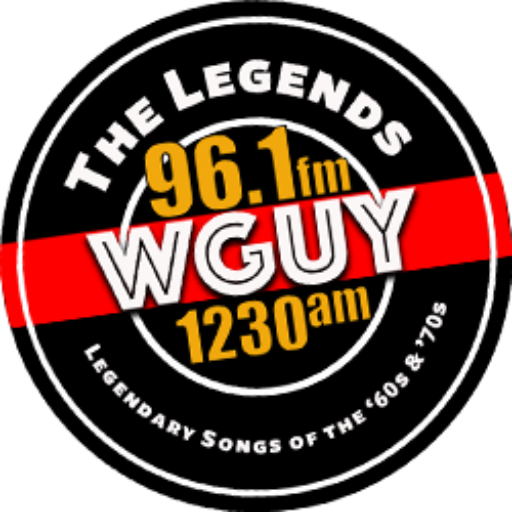Biden, Trump agree to ABC News and CNN debates

(WASHINGTON) — President Joe Biden and Donald Trump, the presumptive Republican nominee, are set to face off in an ABC News presidential debate in September.
Trump and Biden said they have both agreed to a prime-time debate at ABC News studios on Sept. 10.
Before that, they will participate in a CNN debate on June 27 in Atlanta. The debates were scheduled hours after Biden on Wednesday challenged the former president to two debates, which Trump said he was “ready and willing” to do, but pushed for more than two.
“We propose a debate in June, a debate in July, a debate in August, and a debate in September, in addition to the Vice Presidential debate,” said Chris LaCivita and Susie Wiles, with the Trump campaign, said in a memo. “Additional dates will allow voters to have maximum exposure to the records and future visions of each candidate.”
Biden announced Wednesday morning through his campaign that he is bucking the decades-old tradition of fall meetings organized by the bipartisan Commission on Presidential Debates — and instead called on Trump to join him for two televised presidential debates in June and September organized by news organizations.
“Donald Trump lost two debates to me in 2020. Since then, he hasn’t shown up for a debate,” Biden said in a video message his campaign posted to social media. “Now he’s acting like he wants to debate me again. Well, make my day, pal.”
Trump, who skipped all four Republican National Committee-sanctioned 2024 primary election debates and pulled out of one of his three debates with Biden in 2020, said in response that he was willing to debate Biden during the proposed dates, but said there should be more than two debates.
“I am Ready and Willing to Debate Crooked Joe at the two proposed times in June and September. I would strongly recommend more than two debates,” Trump posted on his social media platform.
He added, “Just tell me when, I’ll be there. ‘Let’s get ready to Rumble!!!'”
The Biden campaign outlined some conditions for the debates.
The campaign said that the first debate should be hosted by “any broadcast organization that hosted a Republican Primary debate in 2016 in which Donald Trump participated, and a Democratic primary debate in 2020 in which President Biden participated — so neither campaign can assert that the sponsoring organization is obviously unacceptable,” Biden Campaign Chair Jen O’Malley Dillon wrote in a letter to the Commission on Presidential Debates, obtained by ABC News.
Also, “the moderator(s) should be selected by the broadcast host from among their regular personnel, so as to avoid a ‘ringer’ or partisan.”
The Biden campaign said debates have been “structured like an entertainment spectacle and not a serious exchange of ideas that reflect the enormous stakes of the election.” With that in mind, the campaign said the debate should not have an in-person audience full of “raucous or disruptive partisans and donors, who consume valuable debate time with noisy spectacles of approval or jeering,” Dillon wrote in the letter.
“As was the case with the original televised debates in 1960, a television studio with just the candidates and moderators is a better, more cost-efficient way to proceed: focused solely on the interests of voters,” Dillon wrote.
The Biden campaign said all debates should be just between Trump and Biden — meaning it would bar Robert F. Kennedy, Jr., an independent candidate, from participating.
Addressing one of their cited issues with the Commission on Presidential Debates, the campaign said, “There should be firm time limits for answers, and alternate turns to speak — so that the time is evenly divided and we have an exchange of views, not a spectacle of mutual interruption,” and that a candidate’s microphone should only be on when it is their turn to speak.
Both the Trump and Biden campaigns has expressed concerns with the organization of the debates by the Commission on Presidential Debates — one slated for September and two planned for October — saying that the scheduled debates don’t conclude until well after early voting has already started.
Earlier this month, the Commission on Presidential Debates pushed back, saying that, “as it always does, the CPD considered multiple factors in selecting debate dates in order to make them accessible by the American public,” including religious and federal holidays, early voting, and the dates on which individual states close their ballots.
On Sept. 16, the day of the first debate, Pennsylvania voters can receive, complete and return ballots at their county boards of elections, the commission noted. Minnesota is one of the first states to offer in-person early voting, and voters there can begin to cast ballots on Friday, Sept. 20.
In a statement to ABC News, the CPD said it will proceed with its scheduled debates.
“Our 2024 sites, all locations of higher learning, are prepared to host debates on dates chosen to accommodate early voters. We will continue to be ready to execute this plan,” the statement reads.
CPD had announced it plans to hold the first debate on Sep. 16 at Texas State University, the second on Oct. 1 at Virginia State University and the third on Oct. 9 at The University of Utah, Salt Lake City. It plans to hold a vice presidential debate on Sept. 25 at Lafayette College in Pennsylvania.
The Biden campaign proposed a vice-presidential debate in late July after the Republican National Convention.
ABC News’ Sarah Beth Hensley and Isabella Murray contributed to this report.
Copyright © 2024, ABC Audio. All rights reserved.






